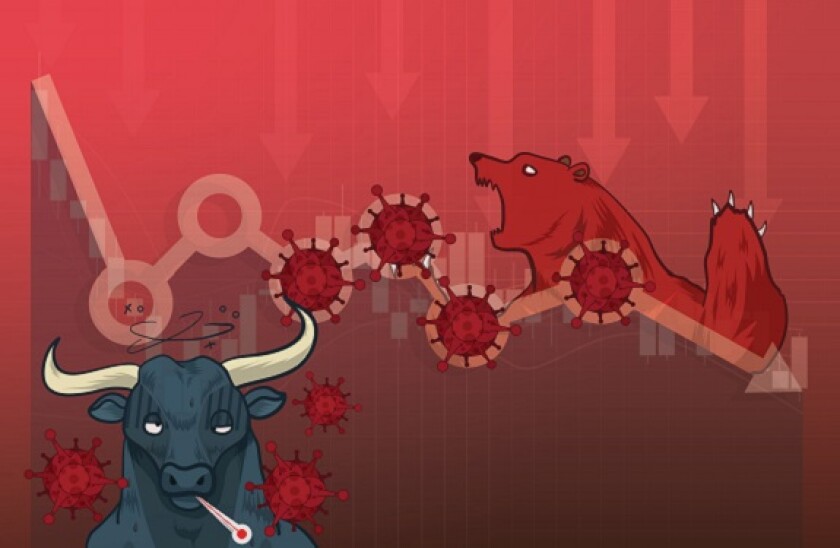Pfizer’s announcement in October that it, together with Germany’s BioNtech, had achieved stellar results in its Stage 3 Covid-19 vaccine trials sent stock markets soaring. Equities maintained their momentum as other vaccine candidates completed final trial stages and won approvals, leading to hopes that the punishing lockdowns used to fight he virus would soon be a thing of the past.
The S&P 500 is 15.7% above its pre-vaccine announcement levels, the Dow Jones is up 15.9% and the Nasdaq 100 by 21%.
Europe has also been the beneficiary of vaccine bullishness. Germany’s DAX has risen 17% from the beginning of November, the Euro Stoxx 50 is up 21% and the FTSE 100 has increased by 15%.
Vaccines are being jabbed into people's arms as we speak, supporting investors' initial optimism, but their deployment has not been smooth and it appears equity valuations based more on hope than reality.
Administering the jabs is a monumental effort and it will be months before a significant proportion of the population has received a full dose.
The UK has been of of the fastest countries to vaccinate its people and 13% of the population, mostly high-risk individuals, have received the first dose. They all need a second doses between 20 and 30 days later depending on which vaccine they have been given.
The country should be optimistic about reopening its economy, far more so than say continental Europe and the US where the rollout has been slower, but its politicians are gloomy.
Prime minister Boris Johnson warned last week that the country had “a long way to go” before it had got to grips with the pandemic, while health secretary Matt Hancock said in the same week that the easing of lockdown restrictions was a “long, long way off.”
The government’s Scientific Advisory Group for Emergencies (SAGE) has also said in the past couple of days that social distancing measures may have to remain in place until 2022 and the government’s chief medical officer Chris Whitty has warned full lockdown measures may be needed next winter too.
Reasons for doubt
There is little evidence on how long the vaccine lasts and there are fears that, like the flu jab, people will need annual boosters to stay inoculated against the virus.
Covid-19 has also mutated already and the new variants are proving to be effective evaders of antibody treatment.
This raises the possibility that vaccines will need to be tweaked, which will take time, and then be readministered, which we know takes months. They could also be rendered completely ineffective by a new strain.
This could send equities tumbling in a repeat of the initial pandemic sell-off.
Ever longer periods of lockdown, as predicted by UK government figures, will mean more pain for companies, lower profits and more potential corporate bankruptcies on top of what was already likely to be a severe recession.
The equity valuations of businesses, which depend on a speedy return to normality, such as airlines and retailers, are all still trading well above the levels they were at before November's vaccine news, spurred higher by the idea that these were strong value trades where stock prices would rocket as normal business resumed.
Investors must ask themselves whether they can support these valuations should social distancing restrictions continue into next year.
Equity investors remain bullish but if a longer pandemic becomes a reality in the next few months, they, and deal-making bankers, should prepare for heightened market volatility and even a full market correction should the fight against the virus take a more serious turn for the worse.

